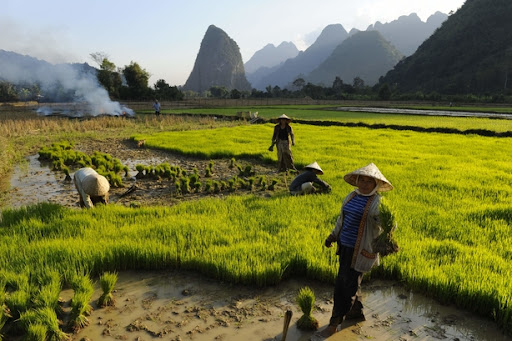Project Proposal
Zero Hunger For All: Achieving Food Security, Improving Nutrition, and Promoting Sustainable Agriculture
By promoting food security, improving nutrition, and supporting sustainable agriculture, this project seeks to ensure that all individuals have access to nutritious food and are empowered to achieve food self-sufficiency.
For getting a complete proposal you can contact us at
Contact: gdn100@gmail.com / What’s App Us:+923082792040 and pay the price of your desired project.
Product Description
1. Introduction
The Zero Hunger project aims to address the global challenge of hunger, malnutrition, and unsustainable agricultural practices. By promoting food security, improving nutrition, and supporting sustainable agriculture, this project seeks to ensure that all individuals have access to nutritious food and are empowered to achieve food self-sufficiency. The project will be implemented in collaboration with local communities, government agencies, and international partners.
2. Objectives
a) Enhance food security: Improve access to sufficient, safe, and nutritious food for vulnerable populations, especially in rural areas and marginalized communities.
b) Improve nutrition: Enhance nutritional status through awareness campaigns, education, and support for sustainable dietary practices.
c) Promote sustainable agriculture: Encourage environmentally friendly and sustainable farming practices, including agroecology, organic farming, and conservation agriculture.

3. Activities
a) Strengthening local food production:
– Provide training and technical assistance to farmers in sustainable farming techniques, such as crop diversification, agroforestry, and soil conservation.
– Promote small-scale irrigation systems to mitigate the impact of climate change on crop production.
– Establish community gardens and promote backyard farming for increased access to fresh produce.
b) Enhancing value chain and market access:
– Facilitate training and support for small-scale farmers, cooperative organizations, and agri-entrepreneurs in post-harvest handling, processing, and marketing.
– Improve market linkages and access to reliable markets through networking with local businesses, cooperatives, and buyers.
– Establish food storage and processing facilities to reduce post-harvest losses.
c) Nutrition education and awareness:
– Conduct nutrition education programs in communities, schools, and health centers to promote healthy eating habits, the importance of diversified diets, and the utilization of local and nutritious crops.
– Support the establishment of community nutrition centers to provide nutrition assessment, counseling, and supplementary feeding for vulnerable groups.
d) Capacity building and empowerment:
– Provide training and capacity building programs for community members, particularly women and vulnerable groups, on food processing, preservation, and value addition.
– Support the creation of producer and farmer groups to enhance their bargaining power and collective decision-making.
e) Advocacy and policy support:
– Engage with local government officials and policymakers to advocate for policies and programs that promote sustainable agriculture, maintain biodiversity, and ensure food security.
– Collaborate with relevant stakeholders to develop and implement food security and nutrition-related policies and strategies.
4. Monitoring and Evaluation
Implement robust monitoring and evaluation mechanisms to assess the effectiveness and impact of the project. Regular data collection and analysis will be conducted to measure progress towards achieving the project’s objectives. Feedback from the local communities, beneficiaries, CT and stakeholders will be incorporated to guide ongoing improvements in project implementation.

BUDGET:
The budget for the “Zero Hunger” project is estimated to be approximately $500,000. This budget will cover various activities and expenses, including:
1. Community mobilization and outreach:
– Hiring and training community mobilizers: $20,000
– Communication materials and campaigns: $10,000
2. Training and capacity building:
– Farmer training workshops and field demonstrations: $30,000
– Nutrition education programs and materials: $15,000
– Training programs for agri-entrepreneurs and cooperative members: $25,000
3. Infrastructure development:
– Establishment of community gardens and backyard farming: $50,000
– Construction of food storage and processing facilities: $80,000
4. Education materials and supplies:
– Printing and distribution of educational materials: $10,000
– Provision of tools and equipment for training and farming: $20,000
5. Monitoring and evaluation:
– Data collection and analysis: $15,000
– Hiring of monitoring and evaluation specialists: $10,000
6. Coordination and administration:
– Project management and coordination: $40,000
– Administrative expenses: $10,000
7. Miscellaneous expenses:
– Contingency fund: $15,000
– Travel and transportation costs: $20,000










Reviews
There are no reviews yet.